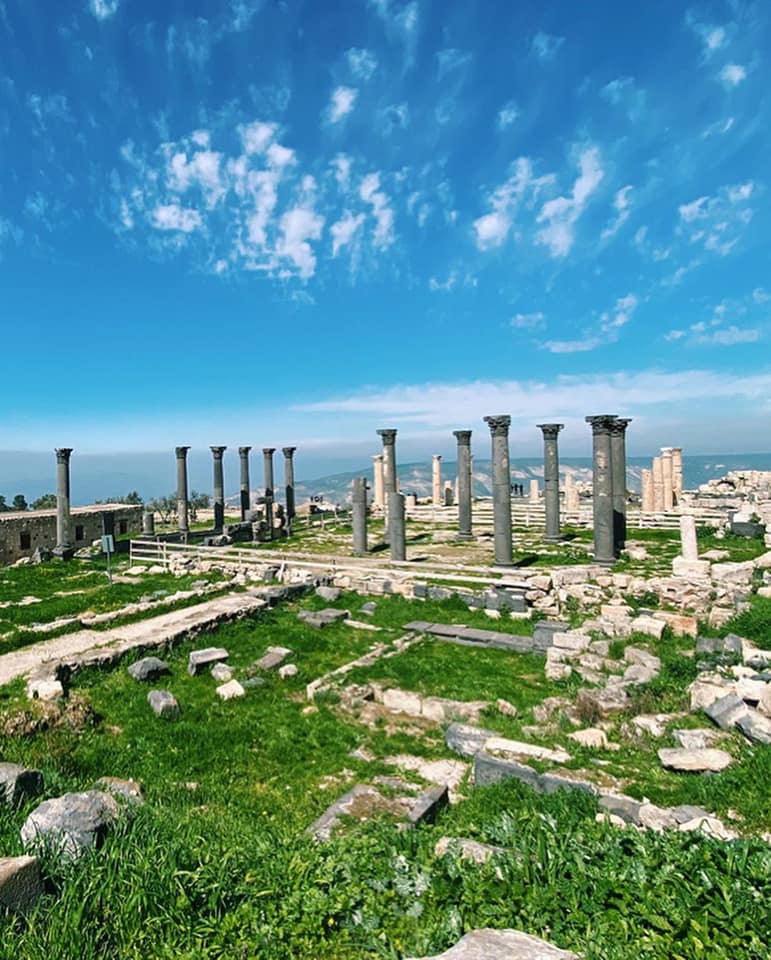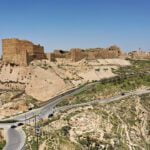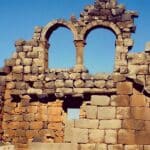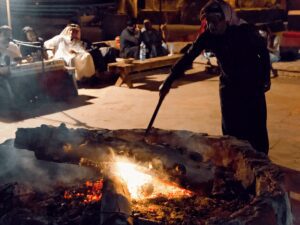Nestled in the picturesque hills of northern Jordan, Umm Qais is a treasure trove of history and cultural heritage. Located about 110 kilometers north of Amman, this small town provides visitors with a unique chance to step back in time and explore the remnants of ancient civilizations. From its stunning archaeological site to breathtaking views of the Sea of Galilee and Golan Heights, Umm Qais offers an unforgettable journey into the past.
Unveiling the Ancient City
Umm Qais was once known as Gadara, an important city of the Decapolis during the Greco-Roman era. Its strategic location on a hill overlooking the fertile Yarmouk River Valley made it a center of trade and cultural exchange. Today, the well-preserved ruins of Gadara give visitors a glimpse into the splendor of this once-thriving city.
Archaeological Marvels
The archaeological site of Umm Qais boasts impressive structures and artifacts from multiple historical periods. A highlight of the site is the Roman theater, which could seat up to 3,000 spectators. Its dramatic setting against the surrounding landscape enhances the experience, making it a popular spot for cultural events and performances.
Another key feature is the Basilica Terrace, offering panoramic views of the Sea of Galilee and Golan Heights. This expansive area once housed a Roman basilica, complete with stunning mosaics and intricate architectural details. Today, it serves as a vantage point for visitors to enjoy the region’s natural beauty while reflecting on the city’s ancient past.
The Decapolis Museum
Adjacent to the archaeological site, the Decapolis Museum holds a wealth of artifacts discovered in Umm Qais and surrounding areas. The museum showcases a diverse collection of statues, pottery, coins, and everyday objects, offering insights into the daily lives of Gadara’s inhabitants. Exhibits also highlight the city’s historical significance within the Decapolis league of cities.
The Modern Town of Umm Qais
While Umm Qais is primarily known for its ancient wonders, the modern town itself offers a warm and welcoming atmosphere. Local cafes and restaurants provide opportunities to enjoy authentic Jordanian cuisine, while markets offer traditional handicrafts. Engaging with the local community and experiencing their hospitality adds an authentic layer to the visit.
Exploring the Surrounding Area
Beyond the archaeological site, Umm Qais is well-positioned for exploring northern Jordan’s diverse landscapes. Nature lovers can embark on hiking trails that lead to the Yarmouk River and the Ajloun Forest Reserve, known for its oak trees and wildlife. The nearby village of Pella, famous for its Hellenistic and Roman ruins, is also worth a visit.
Preserving the Past for the Future
Efforts to conserve and protect Umm Qais’s cultural heritage are ongoing. Collaborative initiatives involving local communities, governmental organizations, and international bodies aim to ensure the site’s preservation and sustainable tourism development. By balancing exploration with preservation, Umm Qais will continue to captivate visitors for generations to come.








